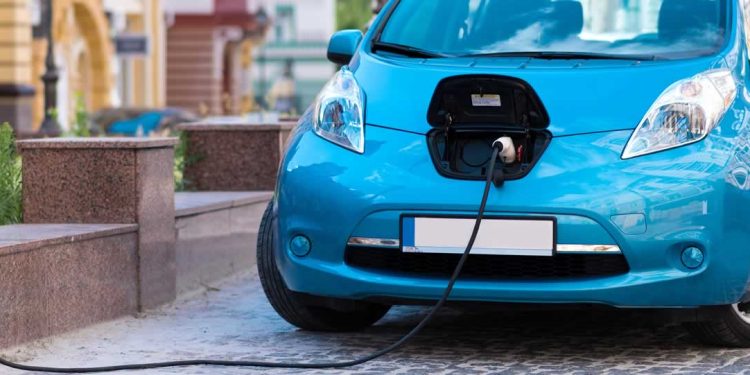The ongoing distrust between the United States and China has degenerated into export controls, threats of sanctions, and outright demands for dissociation – causing ripples in the tech industry.
- Recently, the U.S revoked companies’ licences to export chips to China-based Huawei.
- Since 2019 when Huawei was blacklisted by the U.S, Qualcomm and Intel have supplied the smartphone manufacturer with chips amidst tightening regulations.
- Huawei has grown immensely since the year began, striving to displace Apple iPhones in the Chinese market after registering a 69% growth in sales.
As the U.S Congress continues to justify its animosity towards China tech as ‘protecting national security’, the implications to global trade are far-reaching. The IMF reports that these aggressive policies will cost the world about US$ 1 trillion in GDP losses. Moreover, supply chain disruptions will inflate the prices of tech products that will further hurt consumers.
Last month, President Joe Biden signed into law the ban TikTok, if China-based ByteDance does not divest its ownership of the giant social network. More than 170 million Americans on the app will have to resort to alternative social media apps, or access the app using unauthorized Virtual Private Networks (VPNs).
ByteDance made it clear that it will not sell off the company, accusing the U.S of unfairly designating the app as a data conduit for the Chinese government. Moreover, if the world’s largest democracy took part in stomping decisions like banning a social network, it could set a precedence that would negatively affect social media freedoms elsewhere.
Tiktok is already facing an onslaught in other countries. It is completely banned in India, Iran, and Somalia, and is banned from government-issued devices in multiple countries, including in the European Union, the US, New Zealand and Canada. There have been some conversations about banning it in Kenya, where the government now expects quarterly reports from the social media app. Interestingly, Tiktok is also inaccessible in China, where users use ByteDance’s other social media app, Douyin, instead.
China’s EV Price War
In early May, the European Commission President Ursula von der Leyen issued a directive to China, asking them to stop flooding European markets with subsidized electric vehicles (EVs) that led to price distortions. An anti-subsidy investigation is ongoing to determine whether trade sanctions will be instituted upon Chinese EVs that are imported in Europe. On May 9th, the US Commerce Secretary said the country is also considering whether to ban Chinese EVs or impose restrictions due to national security concerns, according to news site Reuters.
In the final days of April, Tesla’s Q1 sales declined by 20% compared to the same period last year. This led to the company’s CEO, Elon Musk, to concede that China is indeed a formidable competitor. He ruled out his 2011 dismissal in an interview with Bloomberg, where he said that China’s EVs were poor quality and uncompetitive. At that time, China only represented 0.1% of EV sales. Twelve years later, about 60% of the world’s EVs used in the world right now are produced in China from companies such as BYD, GAC Aion, SAIC-GM-Wuling.
As countries are under pressure to transition to electric vehicles before 2030, China’s subsidized production and cutthroat competition has created cheaper EVs. But it has also led to a decline in sales for western manufacturers who cannot afford to reduce prices without unsubsidized costs. Moreover, Chinese companies control the supply chain for raw materials used in manufacturing EVs – according to the Washington Post.
Would protectionist interventions help U.S and European industries compete more effectively? That is a contentious question that economists and trade experts continue to debate. However, one thing is certain. When global tech and business leaders, and governments, are engaged in a scuffle, the tremors are felt everywhere.
What’s Next?
When TikTok’s ban in the U.S becomes effective, other American social networks will strive to fill the gap. Meta has already capitalized on short-video forms in its social media apps Facebook and Instagram with reels, and Google has experimented with YouTube shorts. However, TikTok’s allure remains unmatched at the moment.
The U.S claims that Chinese tech companies are interested in data owned by Americans. Interestingly, data privacy violations have been a blot in the garment of American-owned social media companies such as Google and Meta. Even from a moral standpoint, the so-called degeneracy that TikTok is accused of in many countries still pales in comparison to apps like Reddit, X (formerly Twitter), Instagram, and Snapchat.
As the U.S braces for an election this year, political interests from both the Republican and the Democratic Parties will be wary of foreign interference after the 2016 experience. But when such claims remain unsubstantiated, analytic individuals will dismiss them as tantrums of a Western bloc incapable of competing in a global free market. The hypocrisy of it will remain baffling to those of us watching from the Global South, where we are likely to feel both the good and bad ripple effects of the diplomatic and trade conflicts.




